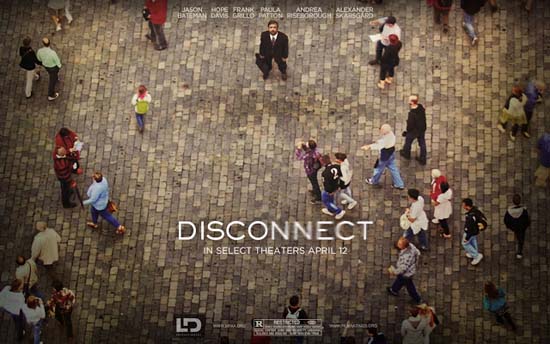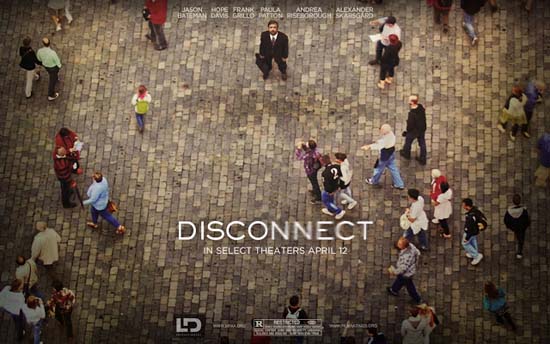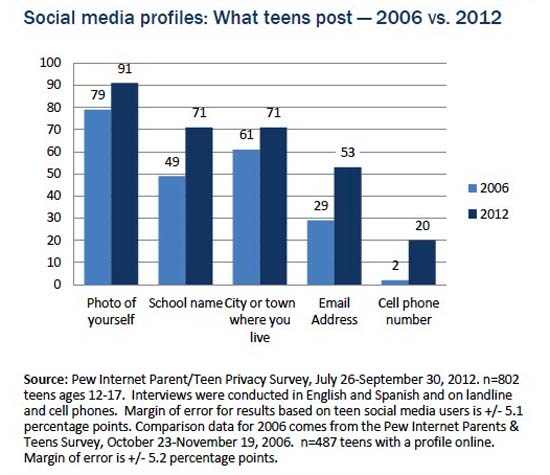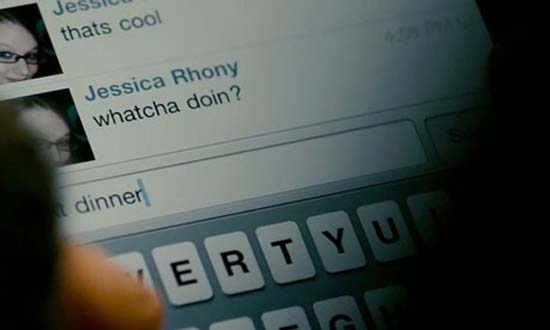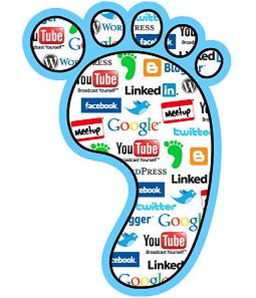A few years ago, my younger sister told me to watch the movie “Disconnect” which tackles the issues surrounding the internet from Webcam sex shows, identity theft, and cyber-bullying. Only Robinson Galleria was showing the movie. As an advocate for kids’ web safety, I thought of watching it to see if there is anything new. I won’t write any reviews but the movie can be summed up this way.
Disconnect is three stories, with each plot a dire warning about this new-fangled Internet technology. One story is about a local TV reporter (Andrea Riseborough) and her relationship with a young man (Max Thieriot) who does sex-cam shows. Another follows a married couple (Alexander Skarsgard and Paula Patton) who have their identity stolen, and are plunged further into debt. The third tale revolves around two high school kids (Colin Ford and Aviad Bernstein) who pretend to be a teenage girl on Facebook so they can play a cruel prank on their shy classmate (Jonah Bobo).
There is really nothing new with the movie. ““Disconnect” is best summed up by the words of the cyber detective, ““If you’re going to [expletive] with someone, do it to their face.” While identity theft, cyber-bullying, and underage sex performers are a reality, these do not define the communications in the Internet age. As a mother with kids during the early years of the internet in the mid nineties, I have always followed the golden rule that parenting online isn’t much different than parenting your child when they aren’t in front of a keyboard.
For our kids, social networking is an exciting way to stay informed, grow relationships and have fun.
Teens, Social Media, and Privacy
The fact is “teens are sharing more information about themselves on social media sites than they did in the past.” Although there are no studies done in the Philippines, results of a PEW survey of 802 teens that examines teens’ privacy management on social media sites is disturbing (You can read the full report here). Teens are sharing more information about themselves on social media sites than they did in the past such as the following:
91% post a photo of themselves, up from 79% in 2006.
71% post their school name, up from 49%.
71% post the city or town where they live, up from 61%.
53% post their email address, up from 29%.
20% post their cell phone number, up from 2%.
Knowing that these information may land in the wrong hands is worrisome. I also believe that teens should become more proactive with their safety . They need to be part of the solution. Steps to safeguard them starts when they are younger, way before they are teens.
Parents need to educate them about staying safer and more secure on the internet. If you allow your kids to use social media, safety is knowing the right settings and supervising them . It has to be said again.
1. Educate your kids on the dangers of sharing too much information.
2. Make sure your computer has adequate virus protection to prevent trojans in the computer.
3 . Keep the computer in a social area of the house so it is easy to monitor who your children are interacting with.
Caring for our children’s digital footprints
My two girls used a screen moniker when they were pre-teens using the world wide web. There were no social networks before except chat rooms and the comment section of blogs. Safety was my number one concern. Since I cannot cover their eyes, or shadow them everywhere, I needed to teach them how to see and how to behave responsibly. I started them early.
These days, a lot of teens probably don’t know that every time they post publicly, they are leaving their digital footprint. A digital footprint is the data trail one leaves with everything our kids do online. Data is being stored from their smartphone to the Internet and social networks. Parents can gently remind their teens on caring about their digital footprint through this article, Teenagers: Why You Should Care About Your Digital Footprint :
1. Information travels fast and is often taken out of context.
Depending on what it is that you see, take a moment to find out if it’s true. Call your friend or check other news sources,. If you’re not sure, wait
2. Don’t be impulsive.
If you do want an outlet to further explain your thoughts and feelings, think about blogging! Blogging is a more appropriate space for some topics we think about posting on Facebook. If you do decide to blog, be mindful of what you say, how it can be interpreted and what it says about you. It’s still a digital place where your body language can’t be seen.
3. If you wouldn’t say it face to face, don’t say it in the social space.
‘Treat others as you want to be treated’, still applies online.
4. Not everything is personal
Just take a second, breathe and reread a post before responding. Even better, if you’re not sure, privately message your friend and ask them about it.
5. You are not as anonymous as you think
Assume that there is no such thing as privacy. Blogs, emails, websites and comments can be tracked back to you. This shouldn’t scare you, but will help you reconsider your potential online actions.
6. Your online actions could make or break you
College recruiters, potential employers and colleagues will look at your digital footprint. If you wouldn’t say it or show it to your grandma, it probably shouldn’t go online. From photos to status remarks, you should always portray yourself in a positive light.
7.Stop Before You Hit Submit
Consider the reactions of those who see your content. Before you post, think:
Does anyone really care?
Is this really something I want to share or am I just venting?
How would I feel if I was the one receiving or reading that?
Could this hurt someone I know?
While the issues of “Disconnect”, the movie is painfully real, it is not as morbid as it should be. The story of a family disconnected through technology can happen but it is the parent who can keep the family together. There is no need to disconnect from the reality that this is wired generation. Parents should connect with their kids at an early age. Online privacy, cyber-bullying and your digital footprint is a serious matter. We need to remind our children to take of themselves, their reputation and look out for their friends.
I have always stated that family values need to be passed along. Family values passed along to every generation play a monumental role in how our child learns and grows. Defining this time will help our family to understand what is important and what it means when one is talking about issues such as family time, play time, and other larger issues such as spirituality and the beliefs that we wish our child to grow up with.
This is the connection that needs to be defined with our children.
Photo of digital footprint from digitalfamilysummit.com
